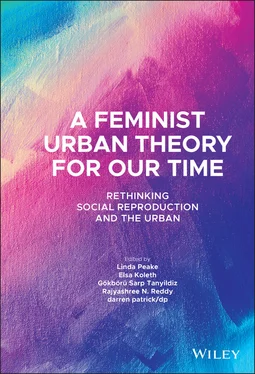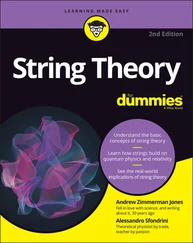54 Hoffman, L.M. (2014). The urban, politics and subject formation. International Journal of Urban and Regional Research 38 (5): 1576–1588.
55 Hong, G.K. (2018). Speculative surplus: Asian-American racialization and the neoliberal shift. Social Text 135, 36 (2): 107–122.
56 Hopkins, C.T. (2015). Introduction: Feminist geographies of social reproduction and race. Women’s Studies International Forum 48: 135–140.
57 Huang, S., Yeoh, B.S.A., and Toyota, M. (2012). Caring for the elderly: The embodied labour of migrant care workers in Singapore. Global Networks: A Journal of Transnational Affairs 12 (2): 195–215.
58 Hunt, S. (2014). Ontologies of Indigeneity: The politics of embodying a concept. Cultural Geographies 21 (1): 27–32.
59 Jazeel, T. (2018). Urban theory with an outside. Environment and Planning D: Society and Space 36 (3): 405–419.
60 Jazeel, T. (2019). Singularity: A manifesto for incomparable geographies. Singapore Journal of Tropical Geography 40 (1): 5–21.
61 Kanes Weisman, L.K. (2000). Women’s environmental rights: A manifesto. In: Gender Space Architecture: An Interdisciplinary Introduction (eds. J. Rendell, B. Penner and I. Borden), 6–12. London: Routledge.
62 Katz, C. (2001). Vagabond capitalism and the necessity of social reproduction. Antipode 33 (4): 709–728.
63 Katz, C. (2006). Messing with ‘the project’. In: David Harvey: A Critical Reader (eds. N. Castree and D. Gregory), 234–246. Malden, MA: Blackwell Publishing.
64 Kim, J. (2018). Settler modernity, debt imperialism, and the necropolitics of the promise. Social Text 36 (2 [135]): 41–61.
65 Klein, N. (2007). Shock Doctrine: The Rise of Disaster Capitalism. Toronto: Knopf Books.
66 Kobayashi, A. (1994). Coloring the field: Gender, ‘race’, and the politics of fieldwork. The Professional Geographer 46 (1): 73–80.
67 Kofman, E. (2017). Reproduction: Social. In: International Encyclopedia of Geography: People, the Earth, Environment and Technology (D. Richardson, N. Castree, M.F. Goodchild et al.), pp.1–34. Oxford: John Wiley and Sons, Ltd. doi: 10.1002/9781118786352.wbieg0308
68 Kollontai, A. (1977 [1909]). The social basis of the woman question. In: Selected Writings of Alexandra Kollontai (ed. and trans. A. Holt), pp. 58–73. London: Allison & Busby.
69 Laslett, B. and Brenner, J. (1989). Gender and social reproduction: Historical perspectives. Annual Review of Sociology 15: 383–384.
70 Lawson, V. (1995). The politics of difference: Examining the quantitative/qualitative dualism in post-structuralist feminist research. The Professional Geographer 47 (4): 449–457.
71 Lefebvre, H. (2003 [1970]). The Urban Revolution (trans. R. Bononno). Minneapolis, MN: University of Minnesosta Press.
72 Leiper, C. (2017). ‘Re-wilding’ the body in the Anthropocene and out ecological lives’ work. Environment and Planning D: Society and Space (14 November). www.societyandspace.org/articles/re-wilding-the-body-in-the-anthropocene-and-our-ecological-lives-work(accessed 8 April 2020).
73 Linebaugh, P. (2008). The Magna Carta Manifesto: Liberties and Commons for All. Berkeley, CA: University of California Press.
74 Lofland, L. (1975). The ‘thereness’of women: A selective review of urban sociology. In: Another Voice: Feminist Perspectives on Social Life and Social Science (eds. M. Millman and R.M. Kanter), 144–170. New York: Anchor Press.
75 Mackenzie, S. (1980). Women and the Reproduction of Labour Power in the Industrial City. Falmer, Brighton: University of Sussex (Urban and Regional Studies). http://www.worldcat.org/oclc/609593273
76 Maldonado-Torres, N. (2007). On the coloniality of being: Contributions to the development of a concept. Cultural Studies 21 (2–3): 240–270.
77 Markusen, A. (1980). City spatial structure, women’s household work and national urban policy. Signs: Journal of Women in Culture and Society 5 (3): S22–S44.
78 Martin, R. (2002). The Financialization of Daily Life. Philadelphia, PA: Temple University Press.
79 Marx, K. (1993 [1885]). Capital: Volume II (trans. D. Fernbach). Middlesex: Penguin Classics Ltd.
80 Mbembe, A. (2004). Aesthetics of superfluity. Public Culture 16 (3): 373–405.
81 McFarlane, C. (2010). The comparative city: Knowledge, learning, urbanism. International Journal of Urban and Regional Research 34 (4): 725–742.
82 McKeithen, W. and Naslund, S. (2017). Worms and workers: Placing the more-than-human and the biological in social reproduction. Environment and Planning D: Society and Space (14 November). www.societyandspace.org/articles/worms-and-workers-placing-the-more-than-human-and-the-biological-in-social-reproduction(accessed 8 April 2020).
83 Meehan, K. and Strauss, K. eds. (2015). Precarious Worlds: Contested Geographies of Social Reproduction. Athens, GA: The University of Georgia Press.
84 Miraftab, F. (2016). Global Heartland: Displaced Labour, Transnational Lives, and Local Placemaking. Bloomington, IN: Indiana University Press.
85 Mitchell, K., Marston, S.A., and Katz, C. eds. (2004). Life’s Work: Geographies of Social Reproduction. Malden, MA: Blackwell Publishing.
86 Mohanty, C. (1988). Under Western eyes: Feminist scholarship and colonial discourses. Feminist Review 30 (1): 61–88.
87 Moyser, M. and Burlock, A. (2018). Time use: Total work burden, unpaid work, and leisure. Women in Canada: A gender-based statistical report. Statistics Canada. www150.statcan.gc.ca/n1/en/pub/89-503-x/2015001/article/54931-eng.pdf?st=30YnK5X5(accessed 9 April 2020).
88 Nagar, R. (2019). Hungry Translations: Relearning the World Through Radical Vulnerbility. Champaign, IL: University of Illinois Press.
89 Nagar, R. (2002). Footloose researchers, ‘traveling’ theories, and the politics of transnational feminist praxis. Gender, Place & Culture 9 (2): 179–186.
90 Nagar, R. (2008). Languages of collaboration. In: Feminisms in Geography: Rethinking Space, Place, and Knowledges (eds. P. Moss and K.F. Al-Hindi), 120–129. Plymouth: Rowman & Littlefield.
91 Nijman, J. (2007). Introduction: Comparative urbanism. Urban Geography 28 (1): 1–6.
92 Norton, J. and Katz, C. (2017). Social reproduction. In: The International Encyclopedia of Geography (eds. D. Richardson, N. Castree, M.F. Goodchild et al.), 1–11. Oxford: Wiley & Sons, Ltd.
93 Noxolo, P. (2017). Introduction: Decolonising geographical knowledge. Area 49 (3): 317–319.
94 Office for National Statistics (2016). Women shoulder the responsibility of ‘unpaid work’. Office for National Statistics. www.ons.gov.uk/employmentandlabourmarket/peopleinwork/earningsandworkinghours/articles/womenshouldertheresponsibilityofunpaidwork/2016-11-10(accessed9 April 2020).
95 Parreñas, R.S. (2012). The reproductive labour of migrant workers. Global Networks 12 (2): 269–275.
96 Peake, L. (2015). The Suzanne Mackenzie Memorial Lecture: Rethinking the politics of feminist knowledge production in Anglo‐American geography. The Canadian Geographer/Le Géographe Canadien 59 (3): 257–266.
97 Peake, L. (2016). On feminism and feminist allies in urban geography. Urban Geography 37 (6): 830–838.
98 Peake, L. (2017). Feminism and the urban. In: A Research Agenda for Cities: Elgar Research Agendas (ed. J. Short), 82–97. Cheltenham: Edward Elgar.
99 Peake, L. (2020). Gender and the city. In: International Encyclopaedia of Human Geography (ed. A. Kobayashi), Second Edition, Vol. 5, 281–292. London: Elsevier.
100 Peake, L., Patrick, M., Reddy, R. et al. (2018). Placing planetary urbanization in other fields of vision. Environment and Planning D: Society and Space 36 (3): 374–386.
101 Pearson, R. and Elson, D. (2015). Transcending the impact of the financial crisis in the United Kingdom: Towards plan F – a feminist economic strategy. Feminist Review 109 (1): 8–30.
Читать дальше

![Михаил Лермонтов - A Hero of Our Time [New Translation]](/books/27671/mihail-lermontov-a-hero-of-our-time-new-translati-thumb.webp)










